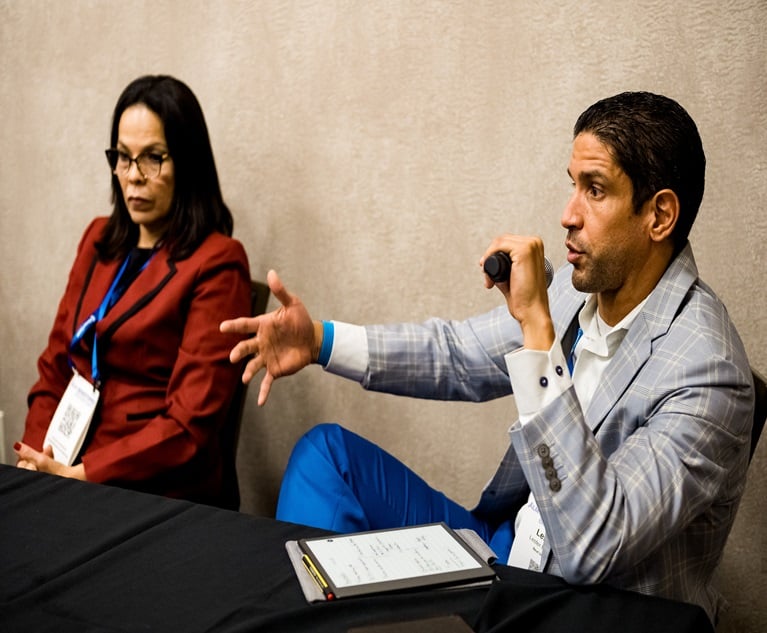It could happen, but it’s ridiculous to even think you’re doingit deliberately.
|Why would any insurance agent intentionally send good clients toa competitor? It doesn’t make sense — or does it? As it turns out,a lot of insurance agents are doing just that with their auto andhomeowners customers.
|Why customers leave
In fact, it happens every day. They don’t need to take the time totext another agent — “I have a great client for you. Lowmaintenance. Never questions or complains. Always pays on time. Letme know.” There’s no need to even send the message. Before you canwhip out your iPhone, you get a text that the account is alreadythere. And why not? Although you had sold the policy, you made noinvestment in the customer.
Related: 10 crimes against the customer
|“What do you expect?” you say. “For what we get paid for anauto, homeowners or businessowners' policy (BOP), it isn’t worththe time. And besides, the internet is getting that business.” Yet,a recent USA Today Vertafore survey tells a differentstory. It found that “78 percent of consumers prefer to work withreal person when reporting an insurance claim vs. submitting onedigitally.”
|At the most crucial moment in the insurance customerrelationship — when they have a loss — customers want to interact with a person. Why?It’s their stuff that’s involved.
|The message is clear: No investment in a client, noclient. It’s that simple. The personal lines problem isn’tcustomers fleeing to the internet. That’s just a symptom. The majorissue is the failure to establish a relationship with personallines clients that demonstrate an agent’s value.
|If clients are “handed off” to an “account manager,” why not buyonline where they get responsive 24/7/365 service and they neverhear “Please leave your name, phone number, the time you called,and a brief message and we’ll get back to you as soon aspossible.”
|What has become painfully clear is that the online insuranceoperations possess a better understanding of what customers wantand expect than do local insurance agents. If you have any doubts,just take a look at their ads. They’re educational.
|Why customers stay
We’re all proud of what we own, and it makes no difference if ourpride-and-joy is a new Porsche or a used Pontiac, a one bedroomcondo or a home in a gated community. If it’s ours, it meanssomething special to us. But that’s not all. We think well of thosewho take an interest in our stuff. This is why a “drive-by”inspection doesn’t do it when it comes to building clientrelationships. Clients want you to see what they own, and it’s alsoan opportunity to let them know you appreciate what’s theirs.
Related: 9 ways to mess up your insurancebusiness
|The home “inspection,” for example, is also a chance to shareyour knowledge and expertise — and increase your client creds. Youwant to leave them thinking, “This agent knows something.” This isthe time to point out possible discounts, not sitting in an officeor asking them questions over the phone. Since you’re there, youcan spot potential risks that deserve attention to avertunnecessary losses — and possible premium increases.
|Most important of all, this is a ready-made opportunity toanswer client questions that might not (read: would not)otherwise come up, what they’ve thought about but never asked. Andwhen you get back to your office, prepare a brief report of yourfindings and send it to the client (no jargon, please). Insurancepeople talk about the need to educate clients about insurance, but, for onereason or another, never get around it. This is one of the“classrooms” where it can take place. It’s a way to say youcare.
|Moment of insurance truth: When a loss occurs
It all comes together at the moment of insurance truth— when a loss occurs. “Will it or won’t it becovered? Will I be treated fairly or will there be a problem?” thehomeowner worries. Sure, the adjuster comes by with an iPad butdoesn’t say much; someone they don’t know and will never see again.This also where you, the agent, belongs.
Clients want to know that you see what happened, understand theloss and are taking care of it for them. Knowing that you’reprepared to represent them with the insurance company is what theyexpect. This is why Nationwide makes the point of having an agentappear magically at an accident scene. It reinforces the messagethat “Nationwide is on your side.” That’s what every customerwants. And, if they get it, they stay.
|For some agents, all this is just too time-consuming and toomuch work for what they get paid or they may feel their time isbetter spent elsewhere. If this is how you feel, that’s not aproblem. Just hand off your clients to another agent. Or, you maybe doing it now.
|Related: 5 ways personal relationships can grow yourinsurance business
|John Graham is the co-owner of GrahamComm, a marketingservices and sales consulting firm specializing in the insuranceindustry. The firm’s unique “Magnet Marketing” strategy is designedto attract and hold customers. His articles on marketing, sales andbusiness trends can be found on his website, johnrgraham.com, and his free monthly eBulletin, “NoNonsense Marketing and Sales Ideas,” is also available there.Contact him at [email protected].
Want to continue reading?
Become a Free PropertyCasualty360 Digital Reader
Your access to unlimited PropertyCasualty360 content isn’t changing.
Once you are an ALM digital member, you’ll receive:
- All PropertyCasualty360.com news coverage, best practices, and in-depth analysis.
- Educational webcasts, resources from industry leaders, and informative newsletters.
- Other award-winning websites including BenefitsPRO.com and ThinkAdvisor.com.
Already have an account? Sign In
© 2024 ALM Global, LLC, All Rights Reserved. Request academic re-use from www.copyright.com. All other uses, submit a request to [email protected]. For more information visit Asset & Logo Licensing.








